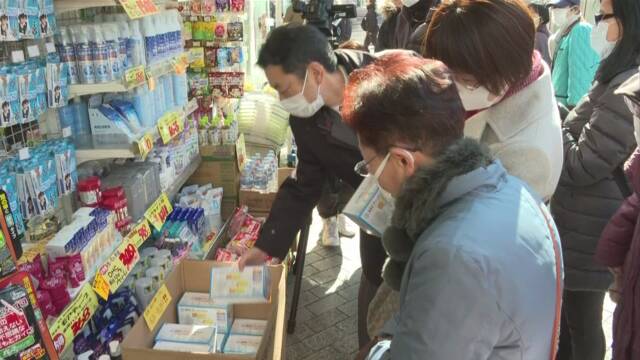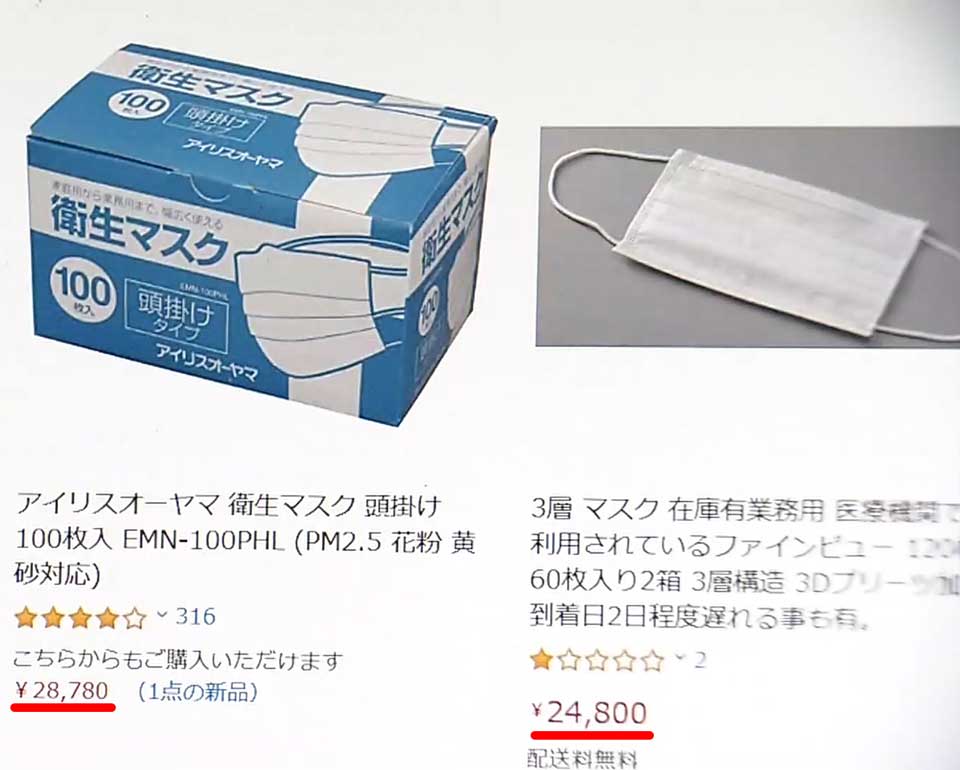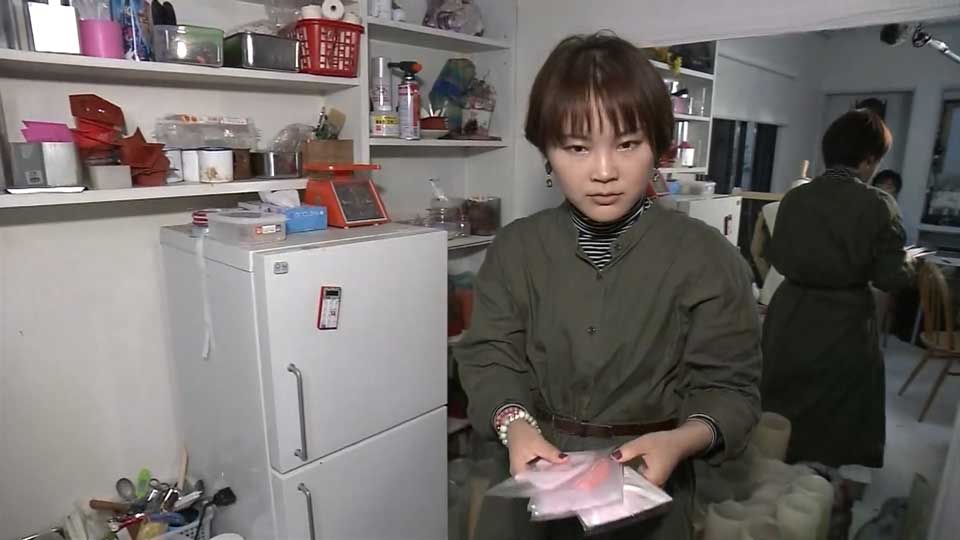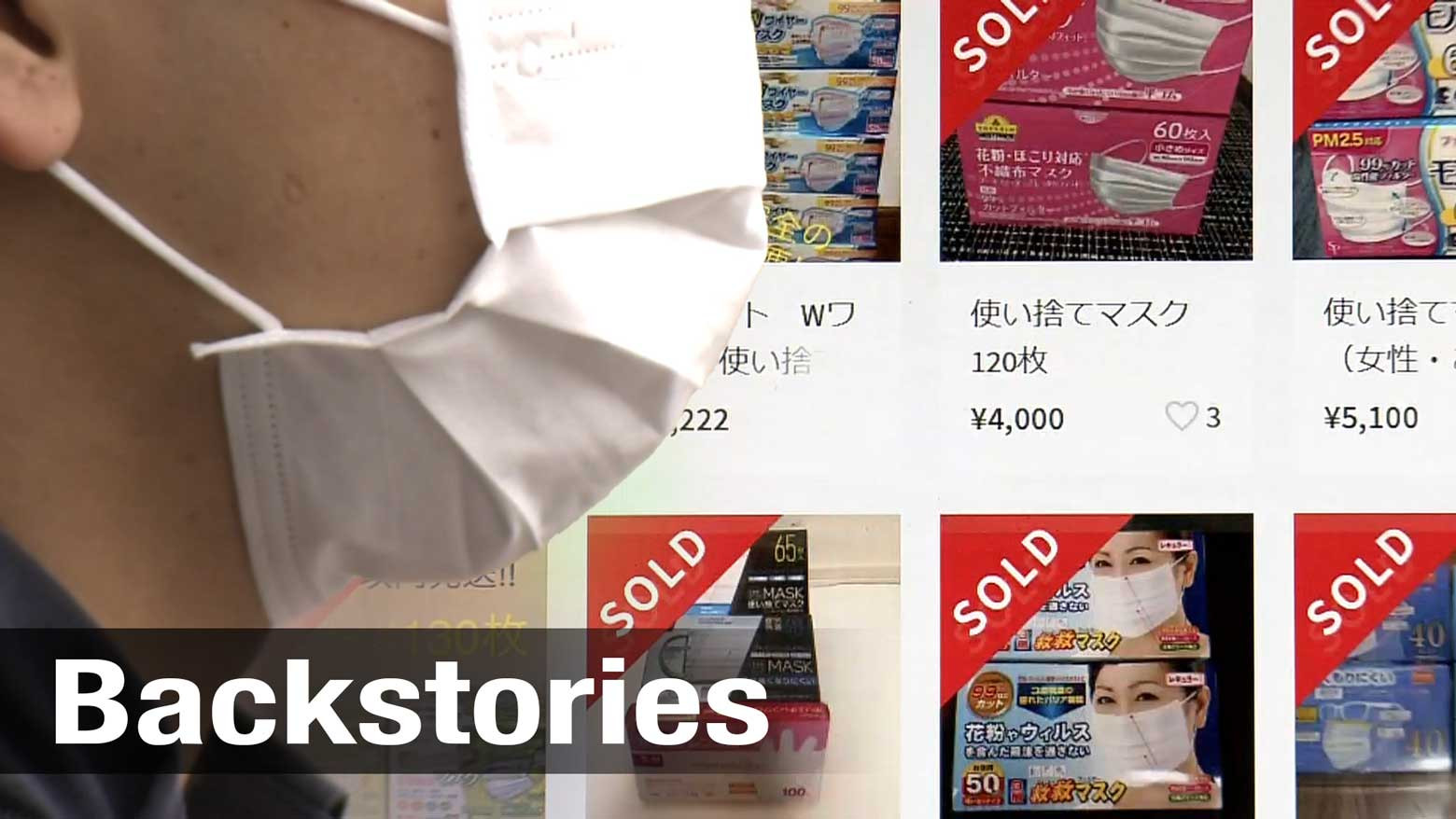
A man based in Fukuoka anticipated the spike in demand and began touring drugstores and convenience stores, snapping up all masks he could find. He then sold them online – for a 300 percent markup.
"It's normal supply and demand," he says, and explains that he has no qualms about his price hike because he is helping to get the masks to the people who need them. He says he feels more lucky than guilty.
Other people have pushed their asking price even higher. Some masks have been selling for ten times their retail cost.

The Consumer Affairs Agency is trying to draw attention to the people who are suffering because of the rush on masks. They says people with asthma and other ailments are complaining that they cannot find the masks they need. The agency has urged online retailers to help prevent price gouging.
Some flea market apps and e-commerce are doing just that. They are warning sellers that they may delete listings of face masks or sanitizers that they deem to have excessively inflated price tags.
Sonoko Sakurai is one of the people affected by the shortages. She suffers from Behcet's disease, an incurable condition that causes oral ulcers and eye inflammation. She says the side effects of her medicine weaken her immune system and leaves her susceptible to infectious disease like influenza. She has to wear a face mask all year round.

Sakurai has only a few masks left, and with hay fever season approaching, the shortage is likely to get even worse. "I really hope the masks reach the people who really need them," she says.
The shortage isn't a problem just in Japan. The South Korean government on Monday introduced penalties for anyone who hoards surgical masks. Violators face up to two years in prison or a fine of 50 million won – about $42,000.
Manufacturers are running their factories around the clock to try to solve the shortage. Mask makers Shikibo say they sold their usual annual output in just two weeks, and they have now tripled their production rate. But as long as the deadly virus is stoking fears, protective masks are likely to be hot – and scarce – commodities.

